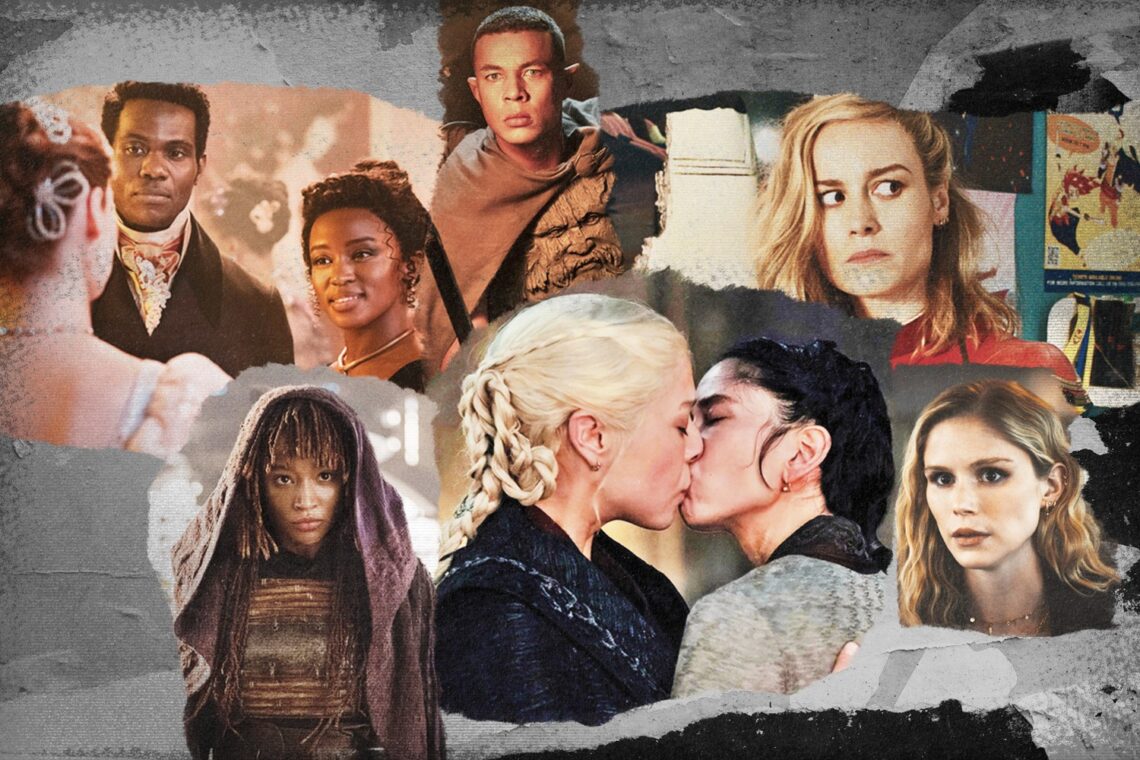The rise of toxic fandoms: A growing challenge for the entertainment industry
Amandla Stenberg addresses the abrupt end of “The Acolyte”
On August 28, Amandla Stenberg, the lead actress of the “Star Wars” series The Acolyte, shared an eight-and-a-half-minute video on her Instagram Stories. She discussed Lucasfilm’s sudden decision not to renew the show for a second season, just a month after the Season 1 finale aired on Disney+.
“It’s not a huge shock for me,” Stenberg remarked. Since the series was announced in 2020, she continued, “we started experiencing a rampage of hyper-conservative bigotry and vitriol, prejudice, hatred, and hateful language towards us.” Stenberg was unavailable for further comments.
The impact of toxic fandoms on the entertainment industry
“The Acolyte” is the latest high-profile target of what is now commonly referred to as toxic fandom. This term describes when fan criticism escalates from genuine dissatisfaction to a relentlessly negative, often bigoted online campaign against the project, its stars, or its creative leaders. In an industry increasingly reliant on established audience devotion to drive profits, the threat of toxic fandoms undermining that enthusiasm has become a significant concern for almost every studio.
The evolution of toxic fandoms
A veteran marketing executive at a major studio noted, “It comes with the territory, but it’s gotten incredibly loud in the last couple of years. People are just out for blood, regardless. They think the purity of the first version will never be replaced, or you’ve done something to upset the canon of a beloved franchise, and they’re going to take you down for doing so.”
Toxic fandoms often reactively target specific content. For instance, a “House of the Dragon” episode featuring two female characters kissing and an episode of “The Last of Us” focusing on a gay couple were both review bombed. This practice involves flooding sites like Rotten Tomatoes and IMDb with negative user reviews, a tactic that gained mainstream attention following the premiere of 2017’s Star Wars: The Last Jedi. Additionally, an entire YouTube ecosystem is dedicated to labeling projects like The Marvels and The Boys as “woke garbage.”
Preemptive backlash and its consequences
Backlash often begins even before a project is released. Examples include a Reddit mega-thread dedicated to outrage over “Bridgerton” casting a Black woman (Masali Baduza) as the love interest for Francesca (Hannah Dodd), social media epithets directed at actors of color cast as elves and dwarves in The Lord of the Rings: The Rings of Power, and death threats aimed at Leslie Jones during the press tour for 2016’s Ghostbusters.
The disproportionate influence of toxic fandoms
John Van Citters, VP of Star Trek brand development, emphasized the disproportionate impact of toxic fandoms relative to their actual number. “The vast majority of any fandom are casual fans. The number of people who live and die on their franchises are very, very few, and then those who come after things that they espouse to love with venom are a really, really tiny subset of that already smaller subset of fandom. It’s just much easier to see it now.”
Strategies to combat toxic fandoms
For some, the best strategy is to ignore the negativity. A TV marketing executive explained, “Particularly when it’s a negative, toxic conversation, we don’t even engage. Like with toxic people, you try to not give it too much oxygen.” Studios may attempt to amplify friendlier voices instead, replying to positive comments and elevating those discussions.
However, toxic fandoms have become so pervasive that they are now a fact of life for many in the industry. Fear of inadvertently triggering another backlash has kept several studios from speaking on the record about the issue. One representative noted, “It’s just a lose-lose.”
Proactive measures and social media management
To avoid provoking fandoms, studios often assemble specialized focus groups of super fans to assess marketing materials for major franchise projects. “They’re very vocal,” said a studio executive. “They will just tell us, ‘If you do that, fans are going to retaliate.'”
Studios also put their talent through social media boot camps. In some cases, when a character challenges a franchise’s status quo, studios may take over the actor’s social media accounts with their permission. When threats of violence arise, security firms may scrub talent information from the internet to protect them from doxxing.
Direct responses to egregious cases
In some particularly severe cases, a direct response is necessary. In 2022, after “Obi-Wan Kenobi” actor Moses Ingram denounced the “hundreds” of racist messages sent to her about her role, Lucasfilm posted a statement on its Star Wars social media accounts condemning the abuse. The Star Wars accounts also shared a video of “Obi-Wan” star Ewan McGregor expressing his disgust at the bullying.
Later that year, the cast of “The Rings of Power” condemned the “relentless racism, threats, harassment, and abuse” directed at some of their castmates of color. Actors from the “Lord of the Rings” film trilogy also showed their support by posting photos of themselves wearing clothing featuring the ears of Middle-earth creatures in multiple skin tones.
The personal approach: Staying offline
Some actors choose to stay off social media entirely to avoid toxic fandoms. Elizabeth Olsen, a frequent Marvel star, stated, “I’m not online, so I’m protected. Generally, it’s a lot of positive experiences of making kids happy. I ignore the other stuff.”
Did you enjoy this article? Share it on your social channels and let us know your thoughts! Don’t miss out on the latest updates! Follow us on social media to stay informed about the newest releases.

 Italian
Italian







